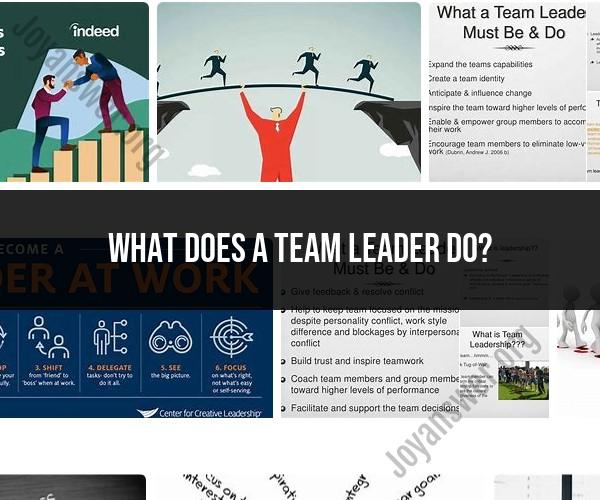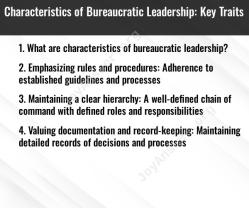What does a team leader do?
A team leader plays a critical role in guiding and supporting a group of individuals to achieve common goals and objectives. The specific roles and responsibilities of a team leader may vary depending on the organization and the nature of the team's work, but here are some common tasks and duties associated with the role of a team leader:
Setting Clear Objectives: A team leader often participates in the goal-setting process. They work with team members and higher-level management to define clear and achievable objectives for the team.
Planning and Organizing: Team leaders are responsible for planning and organizing the team's work. This includes creating work schedules, assigning tasks, and ensuring that resources are available to complete projects or assignments.
Communication: Effective communication is a key responsibility of a team leader. They must communicate team goals, expectations, and progress to team members. They also serve as a liaison between the team and upper management.
Providing Guidance and Direction: Team leaders offer guidance and direction to team members. They clarify roles and responsibilities, answer questions, and help team members overcome obstacles.
Motivating and Inspiring: Team leaders play a vital role in motivating and inspiring their team. They recognize and celebrate achievements, provide positive feedback, and create a positive work environment.
Problem Solving: When issues or challenges arise within the team, the team leader is often responsible for problem-solving. This may involve mediating conflicts, finding solutions to technical problems, or addressing performance issues.
Performance Management: Team leaders monitor the performance of team members and provide feedback. They may be involved in performance appraisals and assist with performance improvement plans when necessary.
Training and Development: Team leaders identify training needs and opportunities for skill development within the team. They may provide on-the-job training or recommend external training programs.
Decision-Making: Team leaders are often involved in the decision-making process. They may make decisions independently or facilitate group decision-making within the team.
Quality Assurance: Ensuring the quality of work produced by the team is a crucial responsibility. Team leaders may establish quality standards, conduct quality checks, and implement quality improvement initiatives.
Time Management: Team leaders help team members manage their time effectively to meet deadlines and achieve goals. This may involve prioritizing tasks and optimizing workflow.
Conflict Resolution: When conflicts arise within the team, a team leader is often responsible for addressing and resolving them. This includes facilitating discussions, finding common ground, and promoting a harmonious work environment.
Reporting: Team leaders typically report on the team's progress, achievements, and challenges to upper management or other relevant stakeholders. They may prepare regular reports or presentations.
Safety and Compliance: In some industries, team leaders are responsible for ensuring that the team adheres to safety protocols, regulatory requirements, and company policies.
Leading by Example: Team leaders set a positive example for their team members by demonstrating professionalism, work ethic, and a commitment to the team's goals.
Overall, a team leader is a critical link between individual team members and the organization's goals. They provide guidance, support, and leadership to help the team work cohesively and efficiently toward achieving shared objectives.











